This article relies largely or entirely on a single source .(January 2017) |
Joseph B. Wells was an American politician. Between 1846 and 1849 he served as Lieutenant Governor of Illinois.
This article relies largely or entirely on a single source .(January 2017) |
Joseph B. Wells was an American politician. Between 1846 and 1849 he served as Lieutenant Governor of Illinois.
There are almost no sources available about Joseph Wells. He joined the Democratic Party and in 1846 he was elected to the office of the Lieutenant Governor of Illinois. He served in this position between 9 December 1846 and 8 January 1849. In this function he was the deputy of Governor Augustus C. French. During his term the Constitution of Illinois was revised. The revision included a change of the inauguration dates of the Governor and the Lieutenant Governor from December to the second Monday in January. Details about his life after the end of his term as Lieutenant Governor are unknown.

Lilburn Williams Boggs was the sixth Governor of Missouri from 1836 to 1840. He is now most widely remembered for his interactions with Joseph Smith and Porter Rockwell, and Missouri Executive Order 44, known by Mormons as the "Extermination Order", issued in response to the ongoing conflict between church members and other settlers of Missouri. Boggs was also a key player in the Honey War of 1837.

Nelson Webster Dewey was an American lawyer, land speculator, politician, and Wisconsin pioneer. He was the first Governor of Wisconsin, and also served in the Wisconsin Senate and served several years in the Wisconsin Territory government before Wisconsin achieved statehood. He was also particularly important in the development of Cassville, Wisconsin, which he had at one time hoped to make the state capitol.

William Christian Bouck was an American politician from New York. He was the 13th Governor of New York, from 1843 to 1844.

William Bebb was a Whig politician from Ohio. He served as the 19th governor of Ohio from 1846 to 1849 and was the third native Ohioan to be elected to the office.
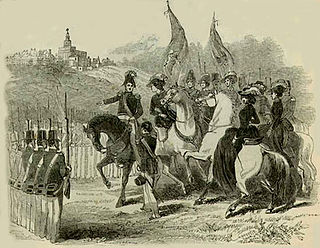
The Nauvoo Legion was a state-authorized militia of Nauvoo, Illinois, United States from February 4, 1841 until January 29, 1845. Its main function was the defense of Nauvoo and surrounding Latter Day Saint settlements, but it was also occasionally used as local law enforcement and paraded at ceremonies such as the laying of the cornerstone for the Nauvoo Temple. The Nauvoo Legion was unique among contemporary militias for its chain of command structure, its expanded functions of the court martial, and for operating at a city level.
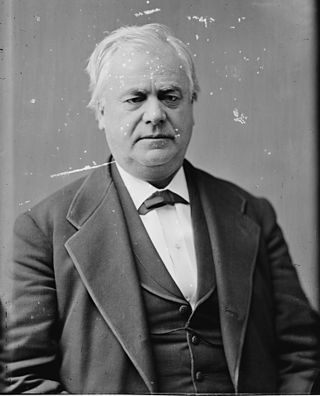
Richard James Oglesby was an American soldier and Republican politician from Illinois, who served three non-consecutive terms as Governor of Illinois and as a United States Senator from Illinois, and earlier was a member of the Illinois Senate, elected in 1860. The town of Oglesby, Illinois, is named in his honor, as is an elementary school situated in the Auburn Gresham neighborhood of Chicago's south side.

John B. Weller was the fifth governor of California from January 8, 1858, to January 9, 1860, who earlier had served as a congressman from Ohio and a U.S. senator from California, and minister to Mexico.

The lieutenant governor of Texas is the second-highest executive office in the government of Texas, a state in the U.S. It is the second most powerful post in Texas government because its occupant controls the work of the Texas Senate and controls the budgeting process as a leader of the Legislative Budget Board.
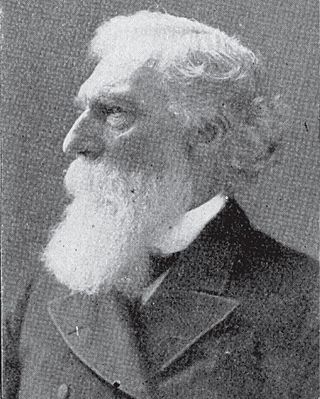
Daniel Hanmer Wells was an American apostle of the Church of Jesus Christ of Latter-day Saints and the 3rd mayor of Salt Lake City.
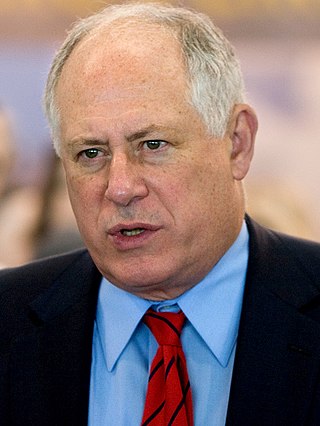
Patrick Joseph Quinn Jr. is an American politician who served as the 41st governor of Illinois from 2009 to 2015. A Democrat, Quinn began his career as an activist by founding the Coalition for Political Honesty. He was elected lieutenant governor in 2002 and served under governor Rod Blagojevich. After Blagojevich was impeached and removed from office in 2009, Quinn assumed the governorship. He secured a full term in office in the 2010 gubernatorial election, but lost his bid for a second term in the 2014 gubernatorial election to his opponent Bruce Rauner.
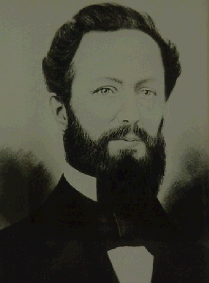
William Temple was an American merchant and politician from Smyrna, in Kent County, Delaware. He was a member of the Whig Party, and later the Democratic Party, who served in the Delaware General Assembly, as Governor of Delaware, and as U.S. Representative from Delaware. He is the youngest governor to serve in Delaware in all of its history.

William Lee Davidson Ewing was a politician from Illinois who served partial terms as the fifth governor of the state and as U.S. Senator.
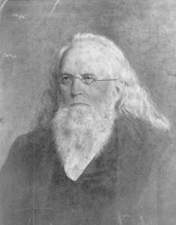
Sidney Breese, a lawyer, soldier, author and jurist born in New York, became an early Illinois pioneer and represented the state in the United States Senate as well as served as Chief Justice of the Illinois Supreme Court and Speaker of the Illinois House of Representatives, and has been called "father of the Illinois Central Railroad".
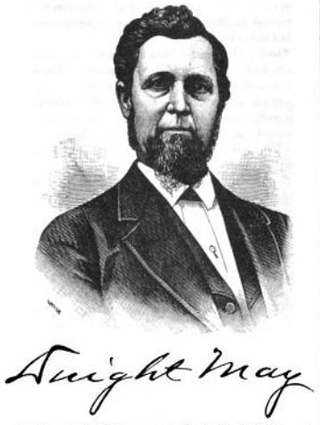
Dwight May was a politician from the U. S. state of Michigan who also served as officer in the Union Army during the American Civil War.

The 1846 New York state election was held on November 3, 1846, to elect the governor, the lieutenant governor and two Canal Commissioners, as well as all members of the New York State Assembly and eight members of the New York State Senate.
Joseph Wells may refer to:
William McMurtry was the 11th Lieutenant Governor of Illinois and a colonel in the Union Army during the American Civil War.
Stinson H. Anderson was an American politician who served as the Lieutenant Governor of Illinois between 1838 and 1842.

Joseph B. Gill was an American politician. Between 1893 and 1897 he served as Lieutenant Governor of Illinois.